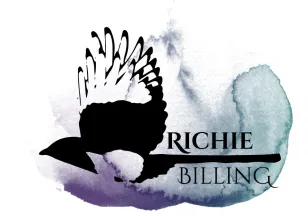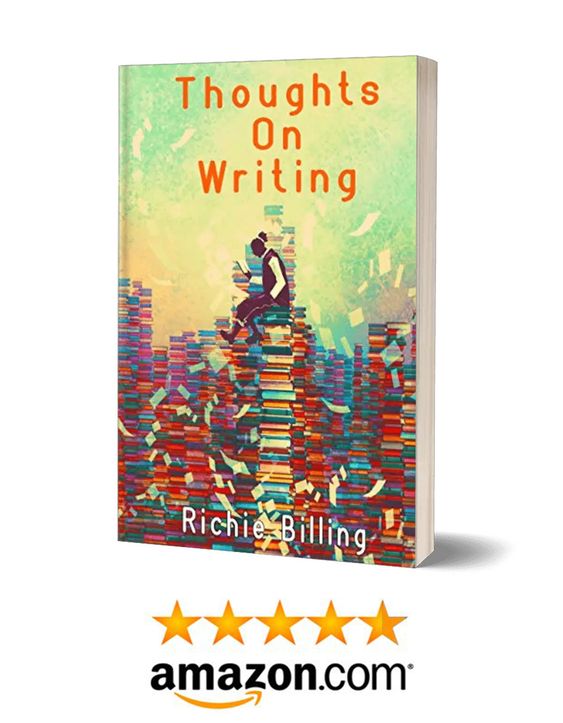When I first began writing it’s fair to say I was ignorant of most of the rules. I never stopped and asked myself, is there a writing process I should be following? I just had a need to pick up a pen and get things down on paper.
However, following a structured process can help you in so many different ways.
In this guide, we look at what the writing process is and offer a step-by-step walkthrough of one you can follow.
We also cover the process of starting writing in the first place, which can be one of the biggest challenges of all.
What Is The Writing Process?
What do I mean when I say process? In short, picking up a pen and getting something down! Everyone ought to be encouraged to write. There’s a tale to tell in all of us. Creativity unshackles the mind, stirs the soul, changes lives.
“I want to write, but I just don’t know how.” I’ve heard this a few times, and what I’m actually hearing is what exactly is the process of writing? Is there a way that everyone does it? Or does it simply involve picking up a pen or typing on a keyboard, or if you’re a vintage-obsessed hipster, a typewriter?
Process is unique to every writer. Sarah Penny, author of the award-winning “The Essex Serpent” says she writes in fifty-five minutes bursts.
Brandon Sanderson, it seems, can churn out a novel a week.
George R.R. Martin insists on using an ancient computer.
“Write drunk, edit sober,” the famous words of Hemingway.
Everyone is different. Nobody is right. Nobody is wrong. The answer is whatever works best for you. You may have to wear a particular t-shirt, drink from a specific mug, sit in a north-facing position. Whatever you need to help you reach that zone. It’s all up to you.
The Writing Process: A Step By Step Walkthrough
Personally, I begin with a black pen (always black, Papermate if possible) and fresh page, a mug of green tea, a cushioned chair, and peace and quiet.
If you’d like a more visual version of this list, check out this great video below:
1. Planning
At this stage the chains of imagination are unshackled, ideas explored and questioned, conflicts conjured, problems solved. Whatever pops into my head is jotted down. Nonsensical ideas included.
Some people simply cannot plan, detest the idea on all levels. Again, this is fine. Exploratory writing can yield some great results. It avoids formulaic plots because the writer is discovering as they go along, making it difficult for the reader to work out what will happen next.
A happy medium between planning and exploratory writing is where I lie. I like to know where I’m going, but sometimes the way ahead isn’t clear, so I roll with it.
2. Writing The First Draft
Next, the first draft. Ride that wave of momentum, harness the excitement of putting your literary jigsaw together. Stephen King describes the process of writing the first draft as “writing with the door closed”. Nail hits the head.
That first draft, nine times out of ten, isn’t going to impress the Man Booker judges. And that’s fine. The door is closed, nobody can peer over your shoulder. Let it flow out of you. If a word comes into your head that you don’t quite know the definition of, but sounds good, put it down. If you find yourself going off on a bit of a detour, let yourself wander. Get it all out, like a glorious fart kept at bay until your partner leaves the room.
3. Editing
The second draft is where you can see what works and what doesn’t. For me, the second draft involves the process of typing up the handwritten first. The “Did I actually write this?” bits are cut, the story refined, passive voice eradicated, adjectives and adverbs tempered, characters voices given clarity.
It’s an ongoing process, akin to sculpting, though admittedly I have no experience of the process of sculpting, but I’m guessing you begin with a rough shape and refine it into a work of art.
Draft after draft follows. There’s no limit to how many you should do, but I’d say aim for at least seven or eight. Printing off your work and editing it on paper is an invaluable step. Draft until you feel you can do no more. And then, as Stephen King suggests, lock it away in a draw for a few weeks. The longer the better. Forget about it completely, so when you finally revisit you come at it with fresh eyes.
Head here to read my comprehensive guide on writing and editing.
4. A Second Set Of Eyes
One of the next steps you can take when you finally finish writing and editing is to get a new set of eyes to take a look at it.
Other writers and readers can see things that you become blind to. There’ll always be that little typo that slips through the net. Or perhaps a character doesn’t develop in quite the way you planned, or there’s a plot hole that needs to be plugged.
Beta readers are some of the best people at spotting these, so it’s worthwhile getting some onboard. One way to find them is through writing groups.
Why not check out my list of online writing groups?
How To Start The Process Of Writing
This is the process that works for me. The biggest challenge I find is making myself start. The laptop will be open, the cursor winking, but that fish tank needs a clean. Procrastination is the devil. The only person who can help you defeat it is yourself. Telling yourself “no” ain’t always enough, so below are a few tips to help you get going, as well as helping you with the process of writing.

1. Join A Writing Group
Brandon Sanderson is a massive advocate of writing groups. I will admit to being hesitant at first, but after giving it a go I’ll never look back. There’s something special about meeting up with a gang of like-minded folk (or even just a friend or two). A group provides much needed support, guidance, the invaluable truth, and above all encouragement and belief.
If you’re the kind of person that needs a deadline, a writing group can give you this. If everyone is workshopping a piece at the next meeting, you don’t want to be the only one empty-handed. I implore you to reach out to fellow writers, or even avid readers, and form a group. Even if it’s just one person, you’re better together than you are alone.
If you’re looking for a group, head here and join my Discord community with over 500 writers!
2. Join A Writing Forum
Writing forums can provide a great source of inspiration. You’re joining a community of fellow writers, interacting in a place where all facets of writing can be discussed, from authors and genres, to dialogue and character development.
Some forums host monthly competitions, such as poetry, flash fiction and short stories, as well as providing writing prompts and spaces for you to share your work for critique.
The people you’ll meet are so knowledgeable, helpful and encouraging it’ll restore your faith in humanity. Forums can be quite addictive, mind. Here’s a few to get you started (the majority are related to fantasy):
- SFF Chronicles
- Reddit’s r/Fantasy
- Reddit’s r/Fantasywriters
- The forum of Aphelion Webzine
- WritingForums.org
3. Read Before You Start Writing
Reading some of your favourite authors can inspire you to get going.
It might be a scene, it might even just be a sentence, but that could spark the creativity pilot light. It can help you find your writing voice too. Read for a bit, then have a write.
It’s how I start every day!
4. Set Yourself Achievable Targets
Set yourself targets! Stephen King says he aims for 2,000 words a day. If you can achieve that, you can finish a novel in around 3 months, and good on you for doing so! With everything life has to throw at us though, writing 2,000 words a day can seem a mammoth challenge and simply put, you’ll shy away from it, then beat yourself up for not doing it.
Set achievable goals. If you get up at 8am and you’re in work at 12pm, be realistic. The main thing is to make yourself do something everyday. Make it a part of your daily routine, such that it pisses you off when you’re robbed of a chance to do some work, makes you feel guilty when you’re doing something else when you could be clocking up words. It may just be a sentence, a bit of editing, or creative thinking. Just make yourself do something. Every letter written is progress.
5. Forget Everybody Else
This is something I have to remind myself quite often. When you read fantastic and successful authors it’s easy to feel intimidated. How could I ever conjure such a detailed and magical world as Middle Earth? Devise such intricate and exciting plots like those of A Song of Ice and Fire? Banish all these thoughts from your mind. All you’re doing is heaping pressure on yourself, pressure that will dissuade you from writing.
Write for yourself. Write because you have a story that needs to be told. Write because if you don’t your head will explode. Your story is your story, told in your own way. It’s easy to feel envious of successful authors; we’ve all been there. But such feelings will hold you back. Instead, learn as much as you can from those you admire.
More Guides On The Writing Process
Before I leave you, I wanted to point you in the direction of a few other guides you may find useful.
- Great Examples of the 5 Senses in Writing – In this guide I talk about utilising the 5 senses in your writing process, as well as providing exericses to sharpen your skills
- An Approach to Editing – In this detailed post, I share my own editing process and reveal my essential tips.
- What Is Characterization? – Coming up with characters is a crucial part of the editing process. This guide talks you through it in detail.
- A Guide To The Writing Process – A detailed guide from MIT
Thanks for reading this guide which explores the question, what is the writing process? I hope you found it useful and wish you the best of luck with your writing!
- 5 Tips to Help Your Child Learn and Succeed at Primary School - February 26, 2024
- The Advantages Of Using An AI Essay Typer Alternative - February 14, 2024
- Advice On Getting Help With Your Homework - January 26, 2024




Pingback: The end of another year… – Richie Billing
Pingback: The end of another year... - Richie Billing